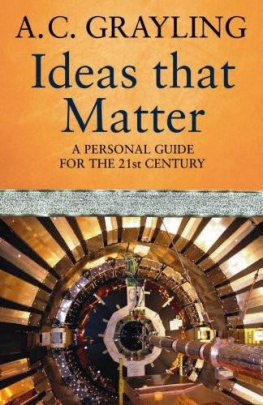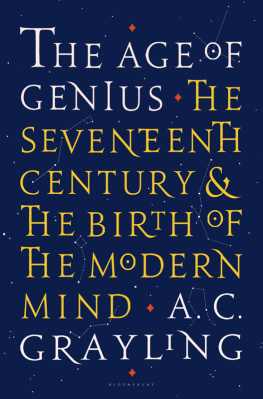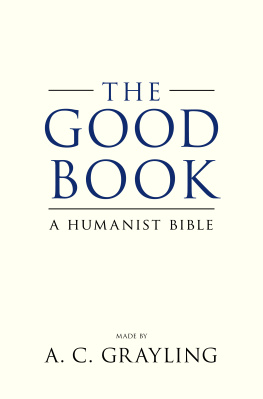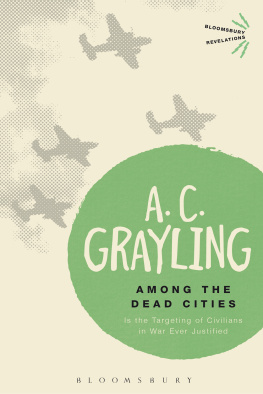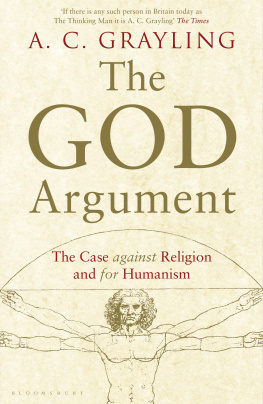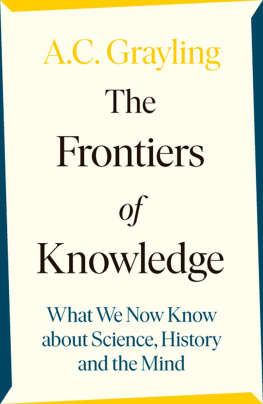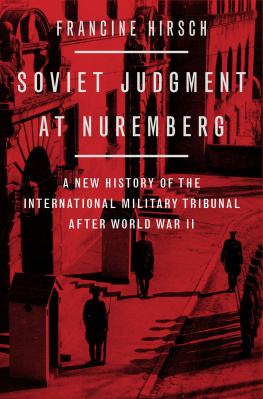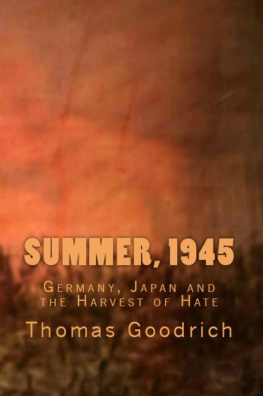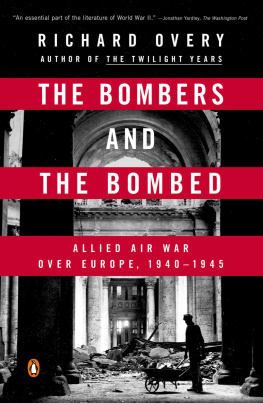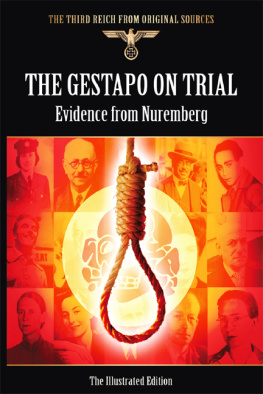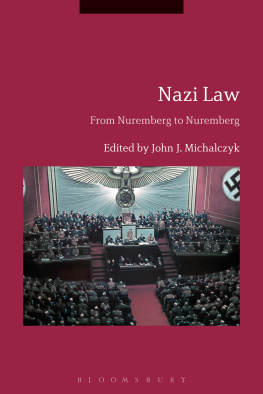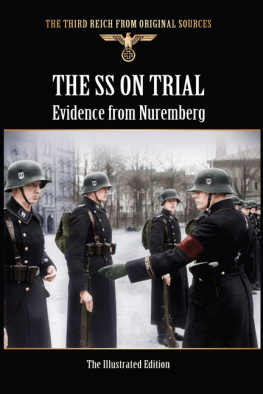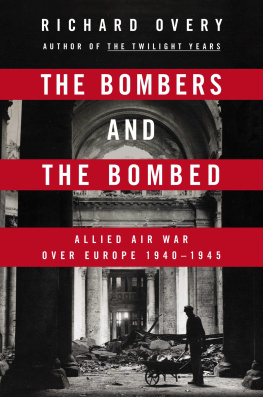Was the indiscriminate bombing of civiliansin Hamburg, in Dresden, in Tokyo, in Hiroshima, in Nagasakijustifiable militarily, or was it in whole or in part morally wrong? Almost immediately one senses what [Graylings] answer will bean unequivocal Yesbut he must be given full credit for reaching that conclusion only after a careful, nuanced analysis. Washington Post
In an age of political terror, when it is urgent to come up with a persuasive distinction between legitimate and illegitimate violence, it is hard to overstate the importance of the questions Grayling raises.American Heritage
In reviewing area bombingone of the most depressing episodes in human historyGrayling reminds us that we have much to learn from our shared past and that even when we fight a war where we hold the morally superior position, we are not justified in doing whatever it takes to win.San Francisco Chronicle
In this book, one of the worlds most passionate and articulate humanists attends to one of the twentieth-centurys largest unexploded moral conundrums Graylings verdict is surprising not in ultimately condemning the attacks but in doing so in an elegantly blunt fashion that simultaneously radiates profound compassion for the perpetrators.Booklist, starred review
A. C. Grayling attempts to answer the great remaining moral question of World War II. That questionWere the Allies justified in their acts of area bombing of civilians in Germany and Japan?is ably addressed This book will certainly not provide the last word on the subject, but it is a landmark effort that cannot be ignored. Read it, and make up your own mind.Richmond Times Dispatch
A valuable read for Americans who want help in thinking through the morality of what has been done in their name, during operations Enduring Freedom and Iraqi Freedom You may not fully embrace his conclusions (I didnt), but after reading this book you may relook at the headlines from Baghdad in their light.Louisville Courier-Journal
This probing study does the issue full justice Drawing on firsthand accounts by theorists, architects, victims and opponents of area bombing, Grayling situates a lucid analysis of the historical data within a rigorous philosophical framework.Publishers Weekly, starred review
Well-argued and persuasive.Kirkus Reviews
An Lntroduction to Philosophical Logic
The Refutation of Scepticism
Berkeley: The Central Arguments
Wittgenstein
Russell
Philosophy 1: A Guide through the Subject (as editor)
Philosophy 2: Further through the Subject (as editor)
Moral Values
The Long March to the Fourth of June (with Xu You Yu)
China: A Literary Companion (with S. Whitfield)
The Quarrel of the Age: The Life and Times of William Hazlitt
The Meaning of Things
The Reason of Things
What is Good?
The Mystery of Things
Robert Herrick: Lyrics of Love and Desire (as editor)
The Heart of Things
Ln Freedom s Name
Descartes: The Life of Rene Descartes and its Place in His Times
The Choice of Hercules: Pleasure, Duty and Moral Culture
AMONG THE
DEAD CITIES
The History and Moral Legacy of the WWII
Bombing of Civilians in Germany and Japan
A. C. Grayling

Copyright A. C. Grayling 2006
Maps by Reginald Piggot
All rights reserved You may not copy, distribute, transmit, reproduce or otherwise make available this publication (or any part of it) in any form, or by any means (including without limitation electronic, digital, optical, mechanical, photocopying, printing, recording or otherwise), without the prior written permission of the publisher. Any person who does any unauthorised act in relation to this publication may be liable to criminal prosecution and civil claims for damages
Published by Walker Publishing Company, Inc., New York
Distributed to the trade by Holtzbrinck Publishers
THE LIBRARY OF CONGRESS HAS CATALOGED THE HARDCOVER EDITION
UNDER LCCN 2005058597
First published in the United States by Walker & Company in 2006
This electronic edition published in 2006
eISBN: 978 1 4088 2790 1
Visit Walker & Companys Web site at www.walkerbooks.com
Visit www.bloomsbury.com to find out more about our authors and their books You will find extracts, author interviews, author events and you can sign up for newsletters to be the first to hear about our latest releases and special offers
For
Madeleine Grayling,
Luke Owen Edmunds,
Sebastian, Thomas, Nicholas and Benjamin Hickman
and Flora Zeman
who are our future
and need us to do justice in all things.
The term war crimes includes murder,
extermination, enslavement, deportation and other inhumane acts committed against any civilian population before or during the war.
US State Department to the British Ambassador in Washington,
18 October 1945
Contents
My warm thanks go to Naomi Goulder, Bill Swainson, George Gibson, Jo Foster and Catherine Clarke for various but always invaluable help in the preparation of this book. It could not have been written without the existence of the British Library, the London Library, the Imperial War Museum Duxford, and the Royal Air Force Museum Hendon, and certainly not without the many fine historians of the Second World War, and particularly the historians of its air war aspects, to all of whom my indebtedness is gratefully manifested in the notes and bibliography.
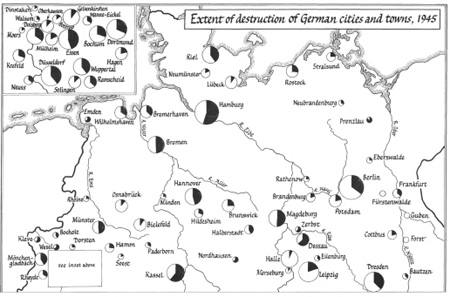
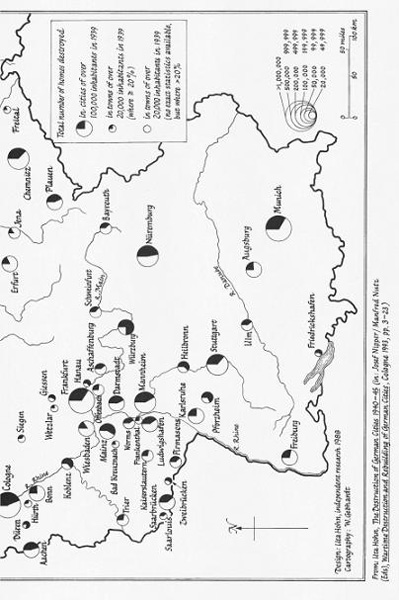
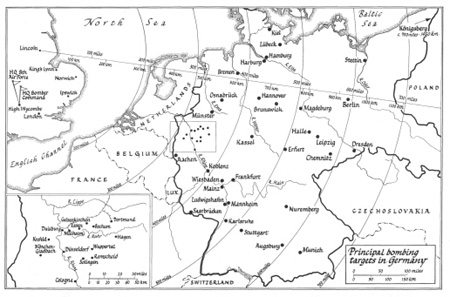
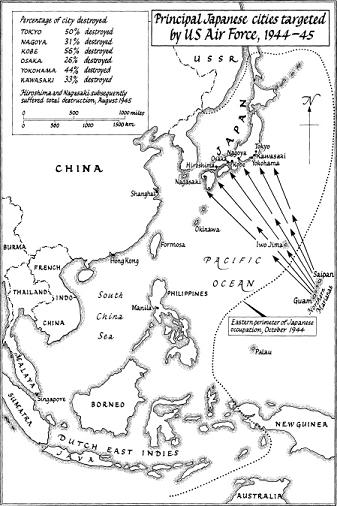
In the course of the Second World War the air forces of Britain and the United States of America carried out a massive bombing offensive against the cities of Germany and Japan, ending with the destruction of Dresden and Tokyo, Hiroshima and Nagasaki. Was this bombing offensive a crime against humanity? Or was it justified by the necessities of war?
These questions mark one of the great remaining controversies of the Second World War. It is a controversy which has grown during the decades since the war ended, as the benefit of hindsight has prompted fresh examination of the area bombing strategy the strategy of treating whole cities and their civilian populations as targets for attack by high explosive and incendiary bombs, and in the end by atom bombs.
Part of the reason why the area-bombing controversy continues to grow is that in todays Germany and Japan people are beginning to speak about what their parents and grandparents endured in the bomber attack, and to see them as victims too, to be counted among the many who suffered during that immense global conflict. What should we, the descendants of the Allies who won the victory in the Second World War, reply to the moral challenge of the descendants of those whose cities were targeted by Allied bombers?


